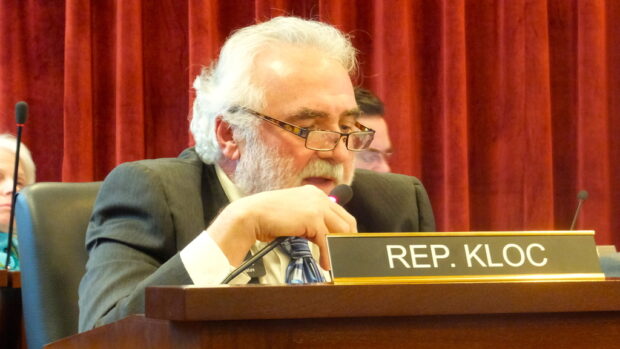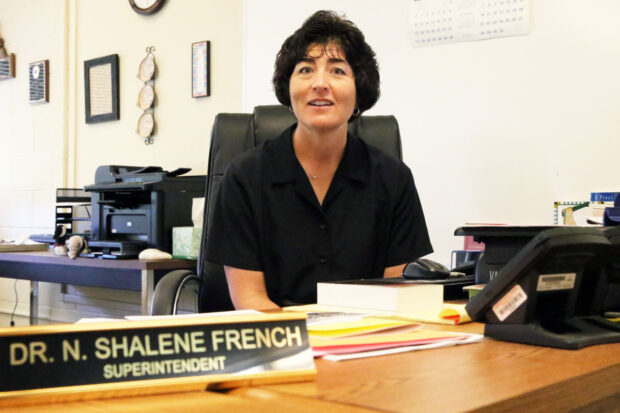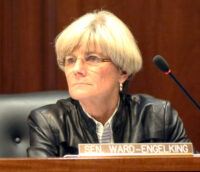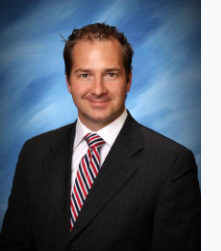A bipartisan group of educators and politicians will discuss the benefits of early childhood learning and a preschool education on Wednesday at the Statehouse.

But unlike more traditional legislative hearings, Wednesday’s hearings will be informational-only because pre-K supporters have been unable to introduce a bill this year.
The group of 18 speakers is scheduled to conduct two hearings. At 9 a.m. the group will speak to the House Education Committee. Then, at 3 p.m., the group will make its case to the Senate Education Committee.
Boise Democratic Rep. Hy Kloc, Idaho Business for Education President/CEO Rod Gramer and Idaho Association for the Education of Young People Executive Director Beth Oppenheimer organized the event.
“We hope to give our best reasoning for why preschool is such an important aspect for education,” Kloc said. “My thinking has always been if you want to improve reading scores in third grade or even kindergarten, you have to get to them before they enter kindergarten.”

Speakers scheduled to participate include Lt. Gov. Brad Little, Caldwell Superintendent Shalene French, Boise Superintendent Don Coberly, Basin Superintendent John McFarlane, Sen. Steven Thayn, R-Emmett, and retired Third District Judge Gregory Culet.
“The purpose of the hearing is to allow our legislators to hear from a variety of different voices and perspectives on the importance of investing in early learning,” Oppenheimer wrote in an email to Idaho Education News.
Since winning a seat in the Legislature in 2012, Kloc has worked unsuccessfully to create a state pre-K program. In attempts to gain support, he has crossed the aisle to work with Rep. Christy Perry, R-Nampa, and Rep. Patrick McDonald, R-Boise.
But opponents have resisted, arguing the state needs to fix its existing K-12 public education system before adding preschool. Other reluctant lawmakers have also pointed out that recommendations Gov. Butch Otter’s Task Force for Improving Education issued in 2013 did not call for offering state-run pre-K. Still others believe the role of educating the state’s youngest children is best handled at home.
Even though his efforts have been blocked, Kloc is pledging to fight for preschool education as long as he holds a legislative seat. He said he’s taken inspiration from former Gov. Cecil Andrus, who had to push for years to launch a voluntary, half-day kindergarten program in Idaho.
“When I started researching preschool back in 2012, we were one of 11 states not offering preschool. We are now one of four states not offering preschool,” Kloc said. “But I learned a long time ago in these hallowed halls that this is not a sprint. This is a marathon.”
Kloc encouraged anyone who would like more information about early childhood learning to attend one of the hearings, or to send him an email.
Master premium plan: a ‘house of straw?’
The bill on Monday’s agenda was straightforward — and the Senate Education Committee passed it unanimously.
But first, senators asked some pointed questions about a plan to reward the state’s top-performing veteran teachers.
At issue is the state’s master teacher premium, an offshoot of the 2015 career ladder law. When the master premium goes into effect in 2019, teachers will be able to submit applications for bonuses that could come to $4,000 per year for three years.
The catch? Senators aren’t sure how many teachers will apply — or how many teachers will qualify for the premiums.
“(It’s) a well-disguised bill that’s going to get us into some financial trouble,” said Sen. Chuck Winder, R-Boise.

Sen. Steven Thayn, R-Emmett, was even more direct, saying the Legislature had created a “house of straw.”
The State Board of Education estimates that 10 percent of eligible staffers will apply for the premiums — an application that will be built around a detailed portfolio. But that is an estimate.
And Sen. Janie Ward-Engelking, D-Boise, reminded her colleagues of the history behind the master premium. In 2013, Gov. Butch Otter’s education task force recommended the state pay a top teacher salary of $60,000. That didn’t happen, said Ward-Engelking, a task force member. Instead, the Legislature capped its salary payments at $50,000 and set up the master premium.

The goal with the master premium is to help Idaho retain its top teachers, Ward-Engelking said.
For the time being, the question before lawmakers is straightforward. Senate Bill 1059 would make the master premiums available to schools’ pupil services staff, such as counselors and physical therapists.
That bill now goes to the Senate floor.
Localizing the state civics test
The House Education Committee celebrated Presidents Day Monday by pushing for Idaho history to play a larger role in a state civics test.
The committee introduced a new concurrent resolution that asks the State Board of Education to add 25 Idaho government and history questions to the civics test.

Rep. Bryan Zollinger, R-Idaho Falls, pushed the resolution, which would amend an existing law that requires secondary students to successfully complete the 100-question citizenship test used by the U.S Customs and Immigration Services.
Zollinger took up the cause of emphasizing Idaho history and government from his predecessor, retired Idaho Falls Republican Rep. Linden Bateman.
A year ago, Bateman introduced a similar resolution that passed the House but died in the Senate when the session adjourned.
“When Rep. Bateman brought this bill to me, I thought it was a good idea,” Zollinger said.
Under committee questioning, Zollinger said he wants to leave it up to local school districts or school boards to develop specific Idaho-based questions for the civics test.
Zollinger doesn’t believe adding Idaho questions will cost the state any money, because educators can do that as part of their normal curriculum and lesson planning duties.
The committee voted to introduce the bill, but Gooding Democratic Rep. Sally Toone, a retired teacher with 37 years of experience, opposed it. Toone argued that existing standards and local curricula already provide students with an education in Idaho government and history.
“I truly believe we are testing students galore,” she said.

Under the 2015 law, this is the first school year that students must pass the civics test. Zollinger’s resolution would not carry the full force of law, but would encourage the State Board to add Idaho-based questions beginning next school year.
By introducing the resolution, House Education cleared the way for it to return to the committee for a full hearing, which Bateman plans to attend.
Idaho Education News reporter Kevin Richert contributed to this report.
